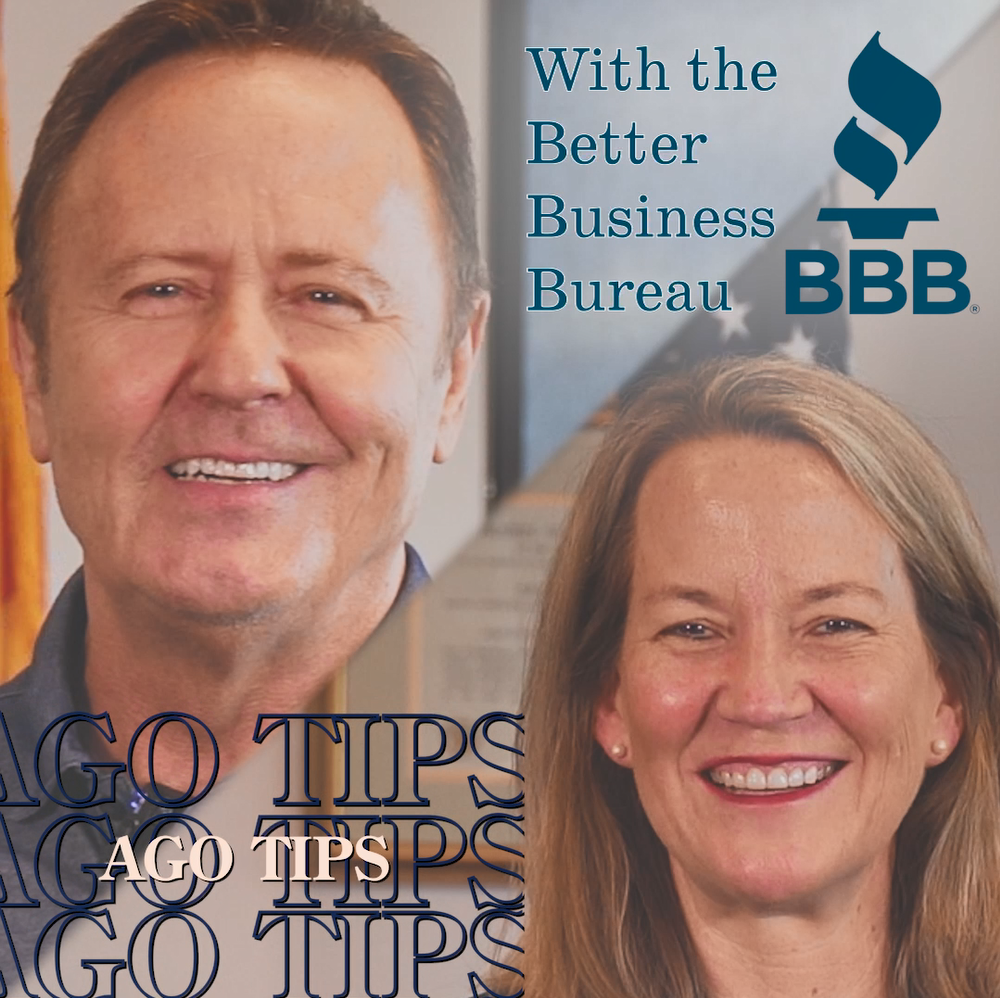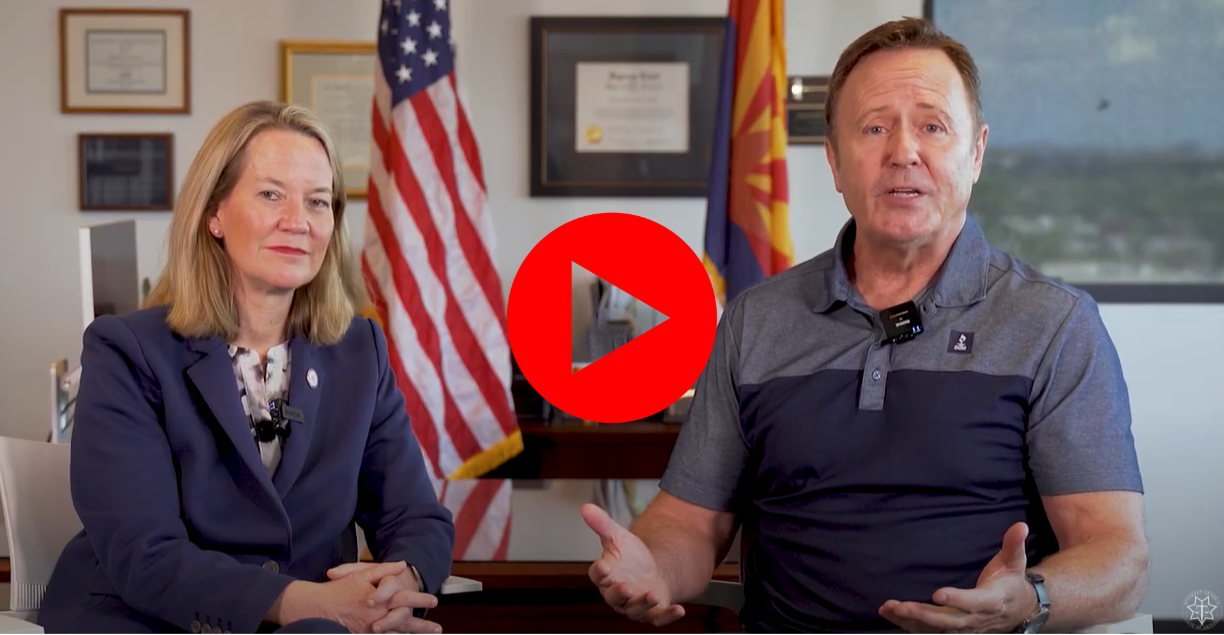

PHOENIX – Today, Attorney General Kris Mayes and Better Business Bureau (BBB) published their second PSA as part of their educational campaign to warn Arizonans about how to spot and avoid common scams. This video focuses on scammers that try to take advantage of consumers when moving apartments or houses.

VIDEO: How to Avoid Moving Scams with the Better Business Bureau's Joe Ducey
Some scammers create “hostage load” situations, in which the moving company provides a low estimate to move but then substantially increases the price once items are loaded on the mover's truck. If the customer doesn't pay the increased price, the mover holds the belongings hostage and, in many instances, drives away with the truck full of belongings.
Arizona's Hostage Load Law (A.R.S. §§ 44-1611 to 44-1616) prohibits intrastate movers from demanding payment and refusing to deliver or unload household goods unless movers comply with specific statutory requirements. For example, it is illegal for a moving company to refuse to deliver or unload goods once you pay the "total estimated price" in the signed contract.
In addition to “hostage load” situations, other common moving scams include:
No show: Consumers receive a quote and pay a deposit, but the movers never show up.
- Upcharge: Consumers are charged on their credit cards for more money than the moving company originally quoted for their services.
- Extra fees: The moving company provides a quote based on expected weight, and after loading the truck, they inform the consumer that the load is over the expected weight and an additional fee must be paid. Most of the time, the additional fee is significantly more expensive per pound, sometimes as much as double the original estimate.
- Stolen items: One of the most disruptive and difficult-to-anticipate moving scams is when everything appears to be going well. The movers provide an estimate, arrive on time, and load your belongings on a truck. However, when the truck fails to arrive at its destination, your belongings are gone.
AG Mayes and BBB encourage consumers to follow these tips to reduce the chances of being scammed during a move:
Thoroughly research moving companies before signing a contract. Before hiring a company, check the company’s complaint history and reputation with organizations such as BBB and read any online reviews.
- Check the mover’s federal registration for inter-state moves. Interstate movers are required to register with the Federal Motor Carrier Safety Administration (FMCSA) and have a U.S. DOT number. You can confirm the mover’s registration by checking the FMCSA website at fmsca.dot.gov or by calling the FMCSA at 202-385-2423. Arizona does not have a registration law or a professional licensing requirement for movers.
- Get moving quotes in writing. Before moving, obtain at least three written estimates. Interstate (out-of-state) moves are priced according to weight and distance. Intrastate (in-state) moves are usually based on hourly charges.
- Beware of extremely low estimates. Dishonest moving companies may give you a low estimate prior to the move to get your business but then demand more money later. If the estimate sounds too good to be true, it could be deceptive.
- Ask about all possible charges and additional fees. Moving companies may charge additional fees for travel time, going up and down stairs, gas, packing materials and/or have other minimum charges. Make sure you receive a detailed up-front written estimate.
- Do not pay cash or a large deposit before the move. Beware of movers requiring a large up-front deposit, cash payment, or payment in full beforehand. Using a credit card provides some protection if there is a dispute.
- Make sure you have proper insurance. Most moving insurance is based upon weight and not the value of your goods. Your expensive, lightweight items may not have enough basic coverage if damages occur during your move. You may also want to check with your homeowner’s or renter’s policy or consider purchasing supplemental moving insurance.
- Move valuable items yourself. This includes cash, electronics, jewelry, medications, medical equipment, and bank records. Do not leave these items out during your move.
- Be present during the move. Be there to ask questions, give directions, and ensure that nothing is left behind.
- Thoroughly review any contract before signing. Do not sign blank or incomplete documents. Make sure you get copies of everything you sign. Untrustworthy movers can insert unapproved terms or fees into blank spaces on documents.
- Seek help immediately if a mover attempts to hold your goods “hostage” for additional payment. Contact your local law enforcement agency or the Arizona Department of Public Safety at 602-223-2212, 602-223-5000, and email [email protected]. Under Arizona law, during an in-state move, it is illegal for a moving company to refuse to deliver or unload goods once you pay the “total estimated price” in the signed contract. A.R.S. §§ 44-1611 to 44-1616. Peace officers can direct a mover to deliver and unload goods being held illegally during in-state moves. A.R.S. §§ 44-1614(c).
The Consumer Protection and Advocacy Section at the AGO protects people – including Arizona’s most vulnerable residents – from fraudsters and scammers, and from all types of deceptive and harmful business practices by enforcing Arizona’s consumer protection laws and other state and federal law. If you believe you have been a victim of consumer fraud, you can file a consumer complaint by visiting the Attorney General’s website. If you need a complaint form sent to you, you can contact the Attorney General’s Office in Phoenix at (602) 542-5763, in Tucson at (520) 628-6648, or outside the Phoenix and Tucson metro areas at (800) 352-8431.
BBB helps consumers make informed buying decisions and is a go-to resource for trusted consumer information, consumer tips and scam alerts. Consumers can also report scams and fraud attempts through BBB's Scam Tracker, which helps identify scam tactics and trends.